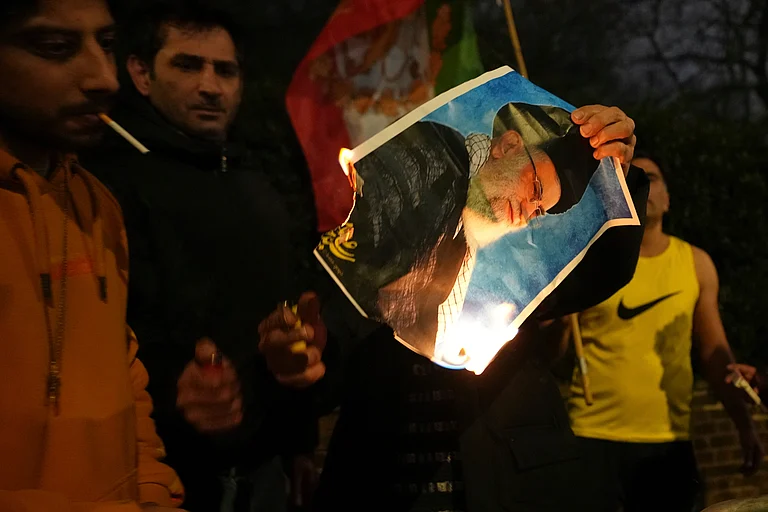Iranian military investigators have found no evidence of criminal activity in the helicopter crash that killed former President Ebrahim Raisi and seven others, according to state media.
A preliminary report by the general staff of the armed forces said the helicopter caught fire after hitting an elevated area, and no traces of bullet holes were found on the wreckage. The investigation also revealed that the helicopter was flying on a pre-planned route and did not deviate from its designated flight path before the crash on Sunday.
RELATED ARTICLES:
The report stated that the final communication between the president's craft and two accompanying helicopters was recorded about a minute and a half before the crash.
The helicopter wreckage was found in Iran's mountainous northwest by Iranian drones early on Monday, with the "complexity of the area, fog, and low temperature" hindering the work of search and rescue teams.
Raisi and his entourage were en route to East Azerbaijan province when the helicopter carrying them crashed in a mountainous area on Sunday.
Also on board the helicopter were Foreign Minister Hossein Amir-Abdollahian and Mohammad Ali Ale-Hashem, the representative of Iran's Supreme Leader to East Azerbaijan.
Raisi was laid to rest on Thursday in the holy shrine of Imam Reza in his hometown, the northeastern city of Mashhad. The military said more time was needed to conduct investigations, and while the first statement on the crash did not lay blame, it said that more details would follow.
The cause of the crash has sparked widespread speculation, with many people suspecting assassination and pointing to Iran's arch-enemy, Israel, as a possible culprit. However, there is currently no evidence to support these claims.




















.png?w=200&auto=format%2Ccompress&fit=max)





